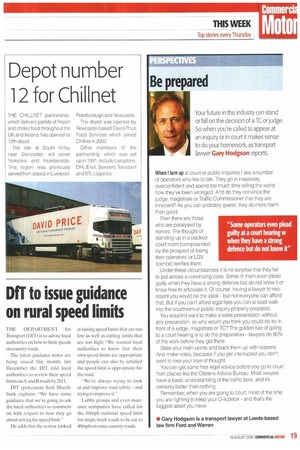Be prepared
Page 19

If you've noticed an error in this article please click here to report it so we can fix it.
Your future in the industry can stand or fall on the decision of a TC or judge. So when you're called to appear at an inquiry or in court it makes sense to do your homework, as transport lawyer Gary Hodgson reports.
When I turn up at court or public inquiries I see a number of operators who like to talk. They go in massively overconfident and spend too much time telling the world how they've been wronged. And do they convince the judge, magistrate or Traffic Commissioner that they are innocent? As you can probably guess, they do more harm than good.
Then there are those who are paralysed by nerves. The thought of standing up in a packed court room (compounded by the prospect of losing their operators' or LGV licence) terrifies them.
Under these circumstances it is no surprise that they fail to put across a convincing case. Some of them even plead guilty when they have a strong defence but do not know it or know how to articulate it. Of course, having a lawyer to represent you would be the ideal — but not everyone can afford that. But if you can't afford legal fees you can at least walk into the courtroom or public inquiry properly prepared.
You wouldn't want to make a sales presentation without any preparation, so why would you think you could do so in front of a judge, magistrate or TC? The golden rule of going to a court hearing is to do the preparation — lawyers do 80% of the work before they get there.
State your main points and back them up with reasons. And make notes, because if you get interrupted you don't want to lose your train of thought.
You can get some free legal advice before you go to court from places like the Citizens Advice Bureau. Most lawyers have a basic understanding of the traffic laws, and it's certainly better than nothing.
Remember, when you are going to court, most of the time you are fighting to keep your 0-licence — and that's the biggest asset you have.
"Some operators even plead guilty at a court hearing w when they have a strong defence but do not know it"




























































































































































































